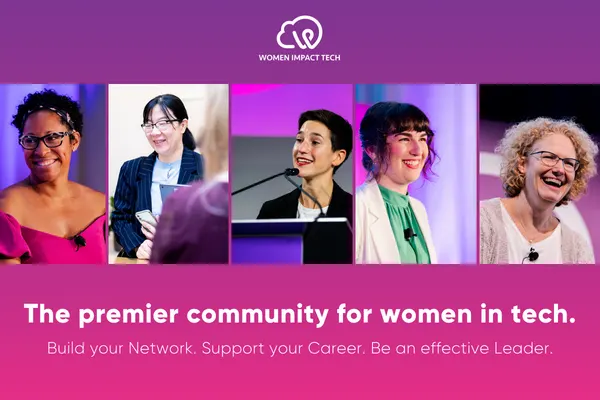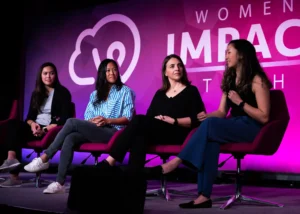
How to Bring Women Back to the Workforce in the Wake of COVID-19
It seems unfathomable, but in a way, that’s where we are, largely because the COVID-19 pandemic disproportionately affected women in a major way. Think about

We’d all like to think we are — and we mean well — but with the very real uphill climb faced by women in tech, we could probably all benefit from taking a little more concrete action.
It’s not surprising, then, to learn that while 80 percent of managers believe they’re an ally, the actual number drops to the low teens once the actual workplace practices are reviewed. That’s because becoming an ally requires more than just general well wishes and words of encouragement. It takes consistent, meaningful action over a variety of areas to take root and grow.

Much of the working world is warming up to the idea of fewer meetings, yet they remain a necessary fixture in workplaces today. So if you’re looking to become a better ally toward women, jumpstarting your inclusion efforts with literal inclusion is a great place to start. That means making sure you’re inviting women to all applicable meetings — and being considerate of when you schedule them. Consider that one in three women and 60 percent of mothers spend five or more hours a day on housework and caregiving. For working mothers of school-aged children, clustering meetings in the morning or afternoon can be difficult.
Similarly, adjusting the format of your meetings can signal your support as well. Switching Zoom calls to phone calls or allowing participants to join without live video, can give women the freedom to juggle responsibilities and remove the pressure to present a professional appearance with so much else going on. In fact, requiring cameras to always be on in meetings was found to hinder communication and collaboration, so you may find it brings other business benefits as well.

Getting a seat at the table is just the beginning, and many people regardless of gender struggle speaking up in group meetings. That said, being able to identify who needs a nudge to join the conversation is integral to allyship — especially for the introverts in your group. Introverts are often overlooked at work, yet they can be incredibly valuable to a team when engaged. Introverts tend to be creative, careful listeners and passionate about their ideas. While studies suggest that women actually tend to be slightly more extroverted than men, the realities of work life for women create other barriers to entering the conversation.
Women, especially in male-dominated fields like tech, are often faced with a paralyzing paradox. One must be assertive to succeed, but women have historically faced backlash for exhibiting dominant traits. That, coupled with pervasive imposter syndrome, makes it difficult for many women to speak out and make their ideas heard. Being more conscious of who may be a little too quiet in the group and asking them their opinions or to share an interesting aspect of their current work may seem like small gestures, but can go a long way to bringing more women into the fold.

Sixty-seven percent of women rate mentorship as highly important — yet 63 percent have never had a formal mentor. Becoming a mentor can be extremely rewarding for all parties involved, and can be a great way to lend your support to women. While any help or guidance you can provide will be welcome, creating a formalized mentoring program is an ideal end goal.
Organizing an official program can improve participation for both mentors and mentees. With so much going on, it can be hard for participants to take the initiative on either end to find a mentor, especially for those who’ve never built that kind of relationship before. A standardized program can also come along with formalized training subjects to ensure participants receive well-rounded career guidance. Monthly topics could range from hard to soft skills, with rotated training in networking, skills development, productivity and more. Your mentors can also benefit from training in a formalized program as well. By training your trainers on mentorship, you’ll be able to ensure your mentees are receiving the best career coaching available.
It should go without saying that equal pay, hiring and promotion practices are also important to supporting women in tech — but those should be table stakes. Actual allyship is an ongoing commitment, day in and day out, to creating and enforcing an inclusive environment that allows women the freedom and flexibility to be their best.
Want more access on trends and insights for female technologists? Become a member of the Women Impact Tech platform where you’ll gain access to our proprietary data and research on topics that matter to you most.


It seems unfathomable, but in a way, that’s where we are, largely because the COVID-19 pandemic disproportionately affected women in a major way. Think about

Do you need help convincing your manager to send you to a Women Impact Tech Accelerate Conference? So you want to attend our Women Impact

What does it look like to be a woman in tech today? See which problems still persist as well as the biggest benefits to pursuing
